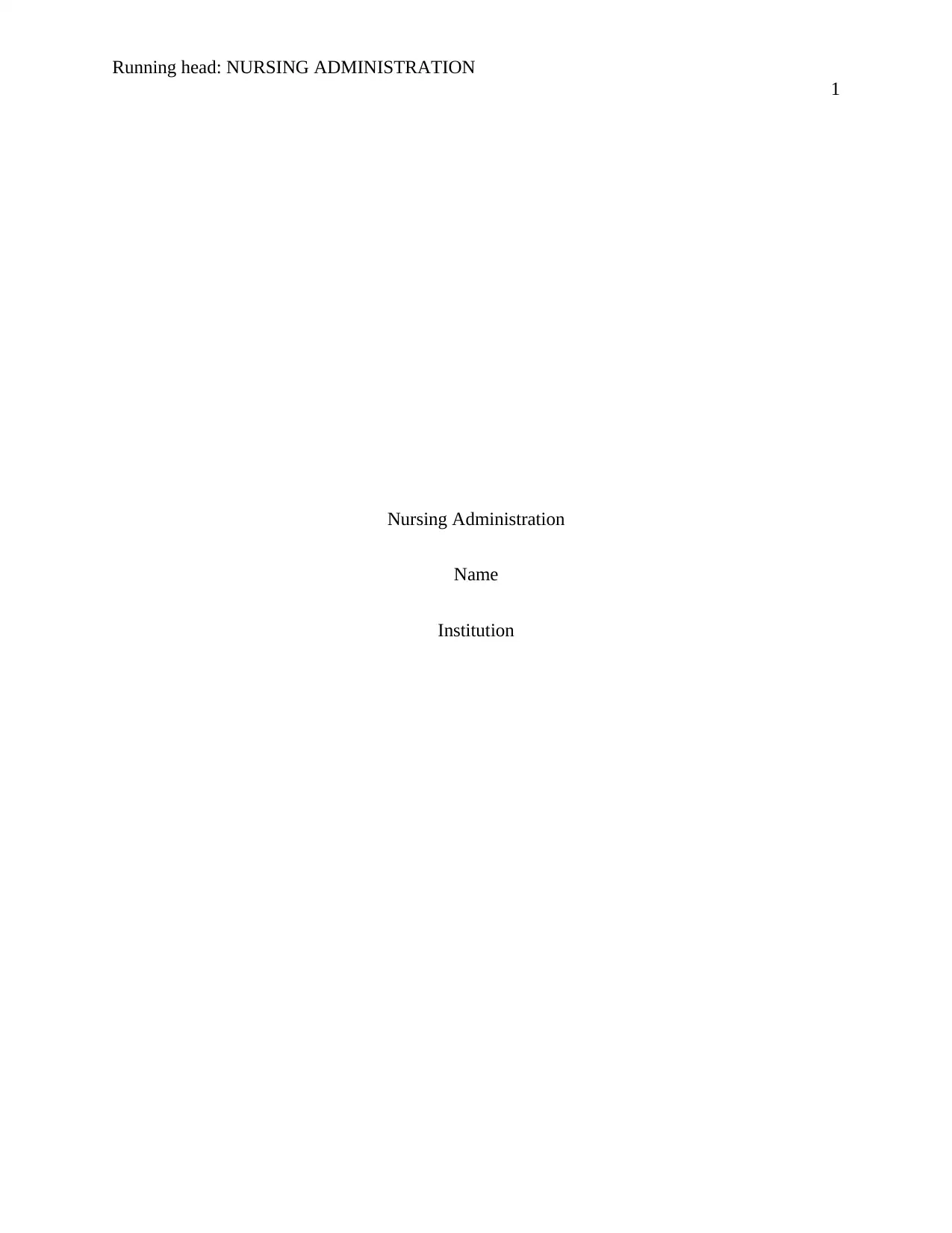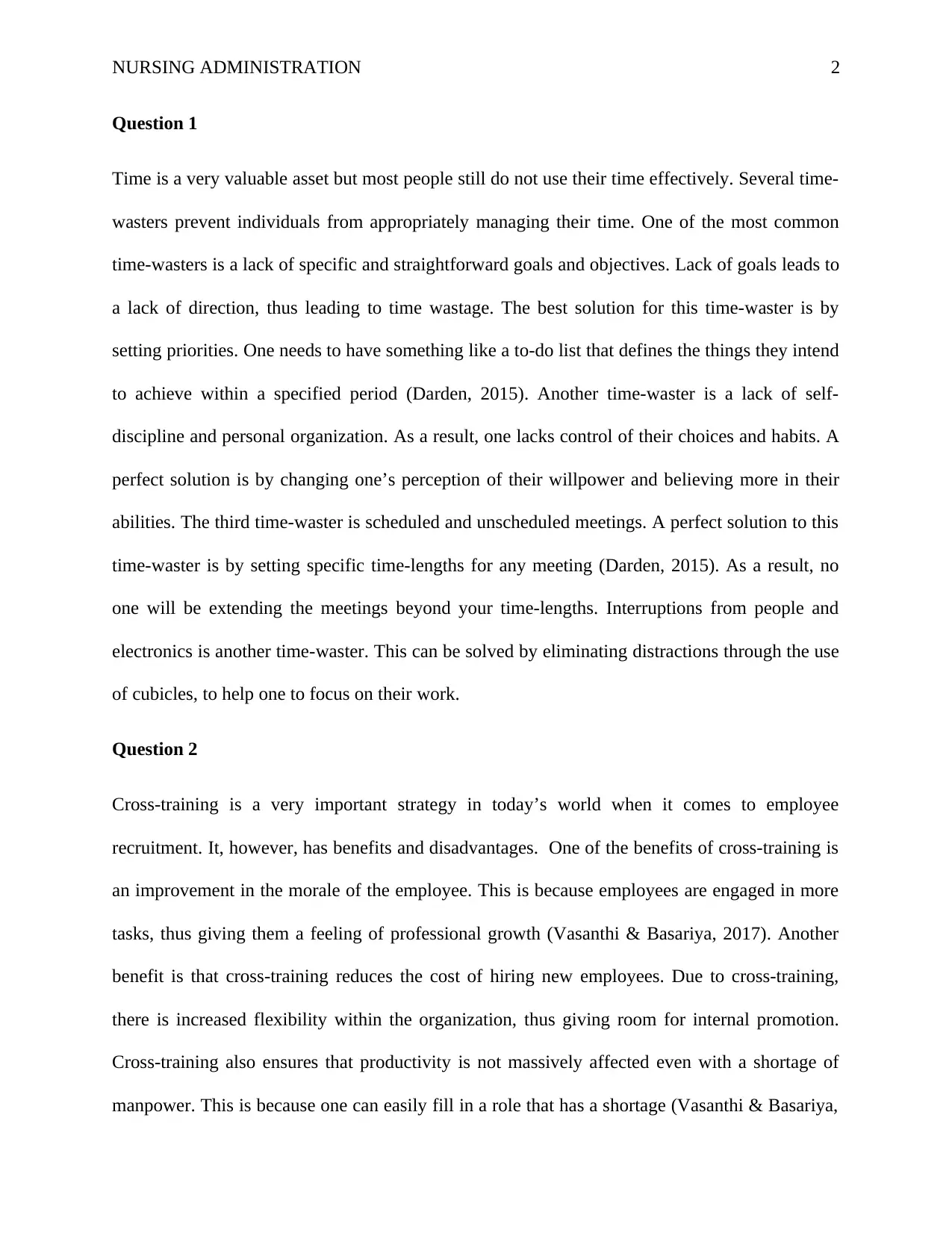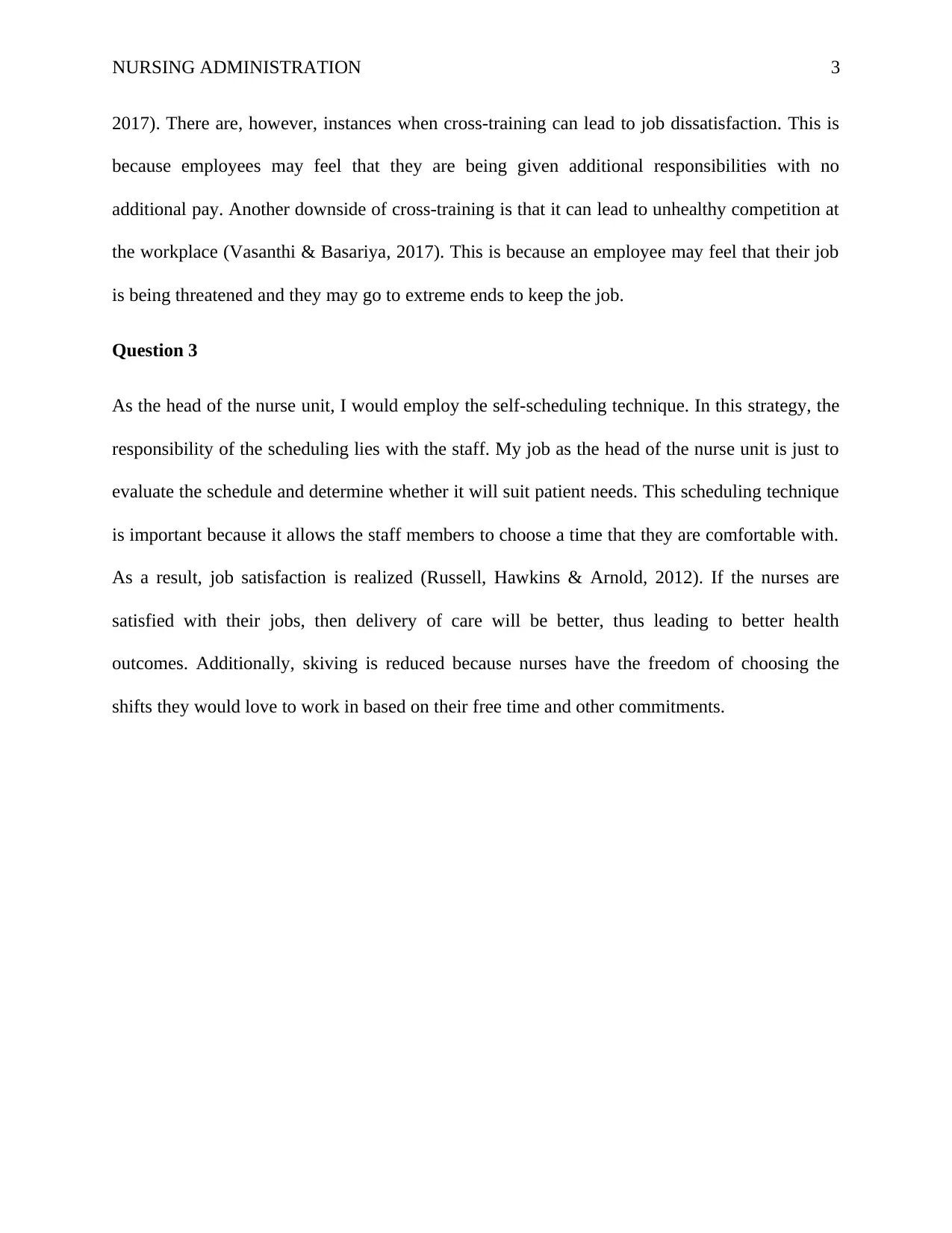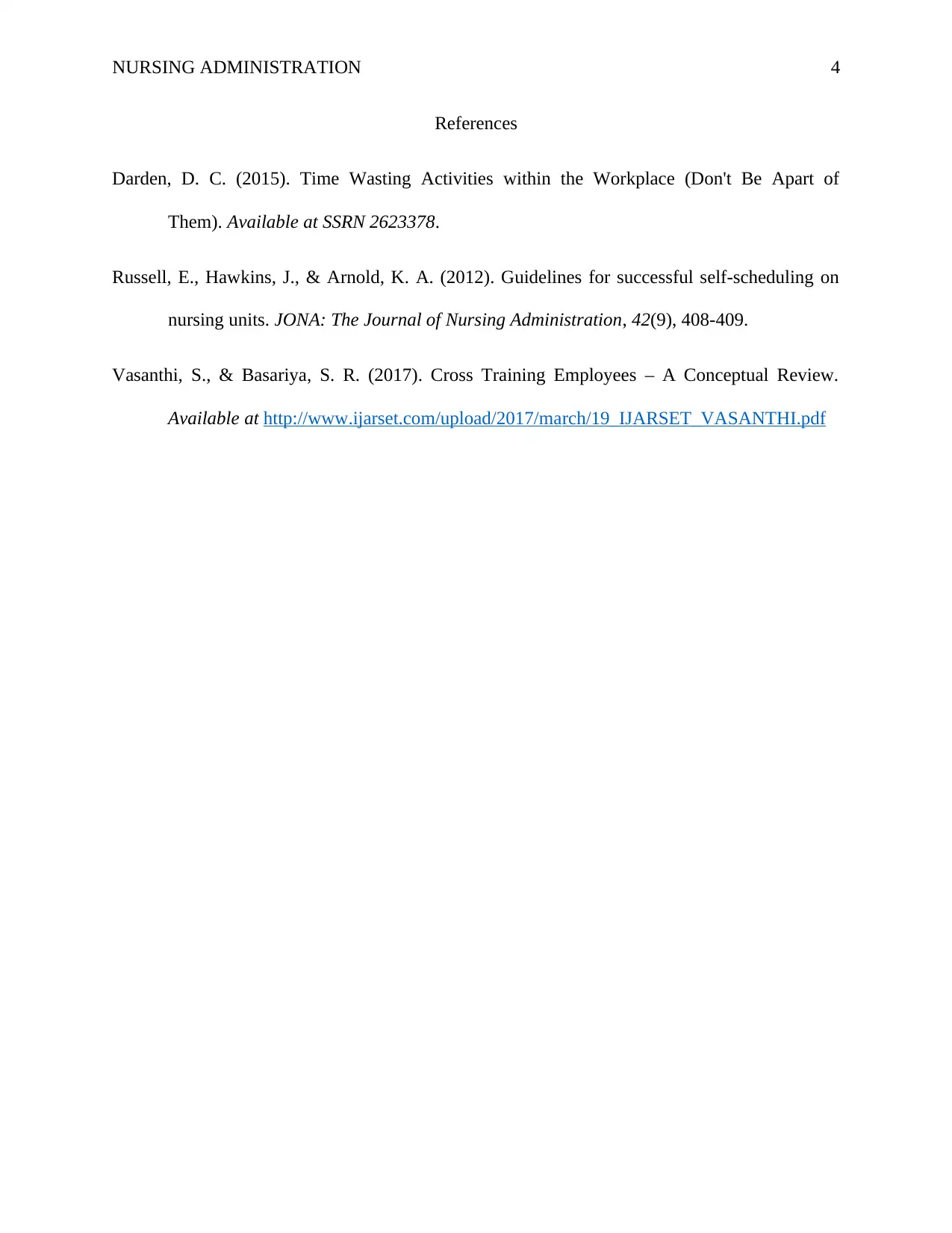Nursing Administration Assignment on Time Management and Staffing
VerifiedAdded on 2022/09/26
|4
|696
|23
Homework Assignment
AI Summary
This nursing administration assignment solution addresses key concepts in healthcare management and leadership. The first question identifies common time-wasters, such as lack of goals, self-discipline, and meetings, and proposes solutions like setting priorities, improving self-control, and setting time limits. The second question explores the benefits and drawbacks of cross-training as a recruitment strategy, including improved employee morale and reduced hiring costs, alongside potential job dissatisfaction and unhealthy competition. The final question advocates for self-scheduling as the preferred scheduling technique, highlighting its positive impact on job satisfaction and reduced absenteeism. The solution includes references to support the arguments presented, adhering to APA style guidelines.
1 out of 4










![[object Object]](/_next/static/media/star-bottom.7253800d.svg)